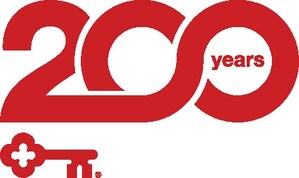
Re-resolved: Make 2015 the Year of Streamlined Personal Finances
CLEVELAND, Jan. 8, 2015 /PRNewswire/ -- A week into the New Year, resolutions are old news for 25 percent of those who made a commitment to tackle the top three resolutions – to lose weight, to get organized and to manage their money.
For those still willing to take a second shot at money management resolutions, here are three tips to streamline your personal finances so you have more control over your money and make confident choices about your spending, saving and investing plans.
Keep it simple, starting with how you pay your bills. At one point or another, whether it's the monthly bill for your utilities, vehicle payment or credit card, businesses will offer the opportunity to pay bills online. Take them up on it. Then decide whether you want to make online payments to the billers' online payment center, or through your bank's bill pay program. Both options let you make payments directly from your checking account, and in some cases you can use automatic withdrawal.
Both options offer different benefits. Using a biller's online payment program can be helpful for making prompt payments close to bills' due dates, saving you guesswork about when a mailed payment might be received and recorded. Your bank's online bill pay lets you make and track all payments at a single site. Regardless, whether you opt for quick credit of payments directly to billers, or simplified one stop bill payment sites through online bill pay, paying your bills online can be a great time saver.
Prefer paper over online? Whether it's a folder, a shoebox or a filing cabinet, you need a filing system to store all bills and receipts. Create a financial filing system for all bill, receipts and checking account information. Calendar time to review and pay bills and to balance your checking account.
And while we are on the subject of keeping it simple, consider having all accounts – checking, savings and primary credit card – with one financial services institution.
Track your spending. One huge benefit to keeping all things financial in one place is that it makes it easier to see where and how your money comes in and goes out.
If you use online banking, monitor your accounts weekly to confirm payments are clearing when expected; there are no unexpected fees or unauthorized activity. If you prefer paper, balance your checkbook, and don't forget to note ATM withdrawals.
For an even more detailed view of your spending, pick a week to keep a daily spending log. It's up to you whether you use a notebook, Excel spreadsheet or one of many templates. The goal is to document every purchase and its purpose.
Build your budget. This is the reward for taking time to organize your finances. Because you know where your money is going, you can make more confident decisions how you spend, save and invest your money. Very simply, a budget is the foundation for your personal finance plan.
By creating - and maintaining – a personal finance plan, you can adjust your spending and saving habits to pay for basic major expenses – housing down payments, emergency funds or college costs – and extras such as family vacations or traveling in retirement.
But the primary goal for your financial plan is planning for retirement. Recent research shows nearly one-third of all Americans have not saved any money at all for retirement. You can buck this trend by starting now to think about the kind of retirement you want and when you want to retire.
Once you know what you want, you can use your personal financial plan to map out your future. This might be a good time to meet with a qualified financial planner. A financial planner can be your partner in helping you attain your financial goals.
This material is presented for informational purposes only and should not be construed as individual tax or financial advice. Please consult with legal, tax and/or financial advisors. KeyBank does not provide legal advice.
About KeyCorp
Key traces its history back more than 160 years and is headquartered in Cleveland, Ohio. One of the nation's largest bank-based financial services companies, Key has assets of approximately $90.8 billion. Key (NYSE: KEY) provides deposit, lending, cash management and investment services to individuals, small and medium-sized business under the name KeyBank National Association. Key also provides a broad range of sophisticated corporate and investment banking products, such as merger and acquisition advice, public and private debt and equity, syndications and derivatives to middle market companies in selected industries throughout the United States under the KeyBanc Capital Markets trade name.
For more information about Key, visit www.key.com or follow Key on Twitter@KeyBank_News and @KeyBank_ Thrive.
Banking products and services are offered by KeyBank National Association. Key.com is a federally registered service mark of KeyCorp. ©2015 KeyCorp. KeyBank is Member FDIC
SOURCE KeyCorp




Share this article